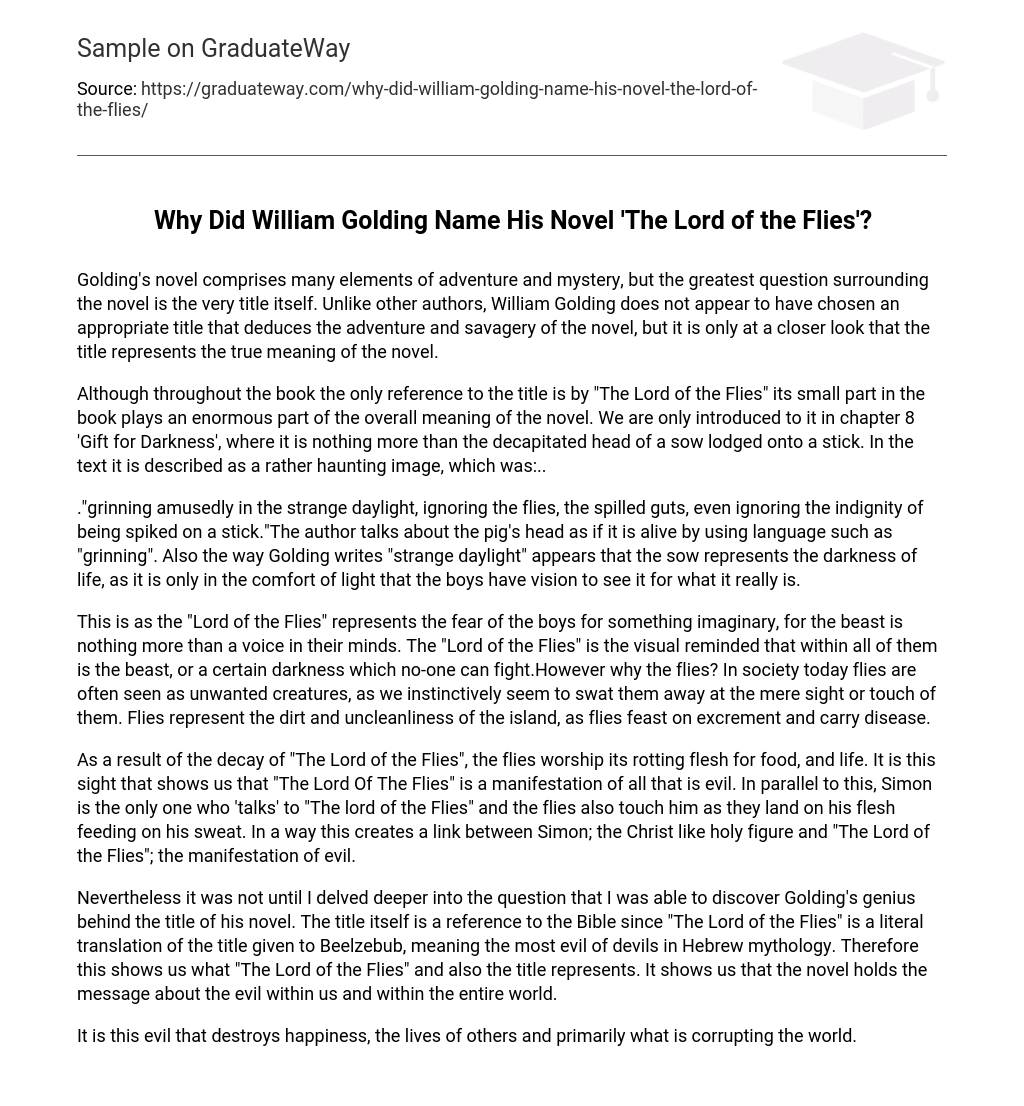Golding’s novel intertwines adventure and mystery, with a central focus on its title. In contrast to other writers, William Golding appears to have deliberately chosen a title that may not initially convey the true nature of the book’s thrilling exploits and primal brutality. Nevertheless, upon closer scrutiny, it becomes apparent that the title adeptly encapsulates the authentic importance of the novel.
In chapter 8 of the book, ‘Gift for Darkness’, there is a significant mention of “The Lord of the Flies”, depicted as a pig’s head impaled on a stick. This eerie and unsettling image holds great importance.
The author depicts the pig’s head as if it possesses life, with its grinning demeanor in the unusual daylight. Despite the presence of flies and spilled guts, it disregards even the humiliation of being impaled on a stick. Golding’s choice of language suggests that the sow represents the darkness of life, with the mention of “strange daylight” highlighting that it is only when the boys are in the comfort of light that they can truly perceive its true nature.
The symbolism of the “Lord of the Flies” lies in its representation of the boys’ fear towards an imaginary beast, which is merely a voice inside their minds. This symbol serves as a reminder that there exists a darkness or beast within each individual that cannot be confronted. Nonetheless, the selection of flies holds significant meaning. In contemporary society, flies are typically regarded as undesirable creatures that we instinctively swat away upon encountering them. They embody the filth and impurity present on the island since flies thrive on waste and transmit illnesses.
“The Lord of the Flies” deteriorates, leading the flies to honor its rotting flesh as nourishment and existence. This display illustrates that “The Lord of the Flies” encompasses everything that is sinful. Additionally, only Simon interacts with “The Lord of the Flies,” and the flies touch him while feeding on his sweat. In a way, this forms a bond between Simon, who embodies purity like Christ, and “The Lord of the Flies,” which signifies absolute evil.
After conducting additional research, I discovered the clever reasoning behind Golding’s selection of his book’s title. The title refers to the Bible where “The Lord of the Flies” translates directly to Beelzebub, an ancient Hebrew mythological character symbolizing complete wickedness. As a result, this highlights the importance of both “The Lord of the Flies” and its title. It signifies that the novel conveys a deep message about the innate malevolence present in humanity and in our world overall.
The malevolence has detrimental effects on joy, others’ lives, and is chiefly accountable for polluting the world.





